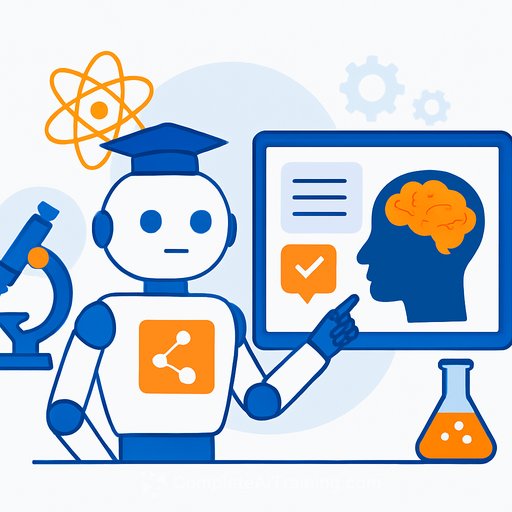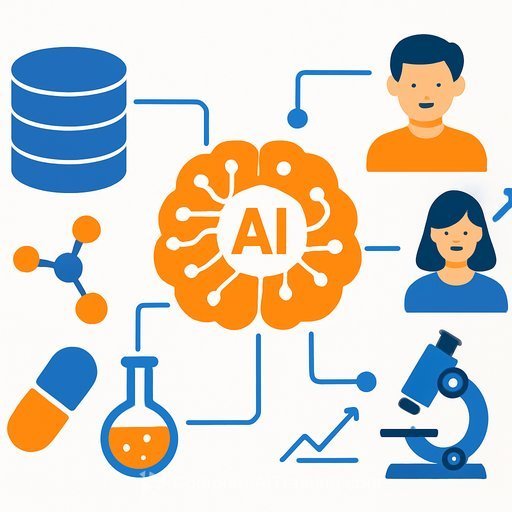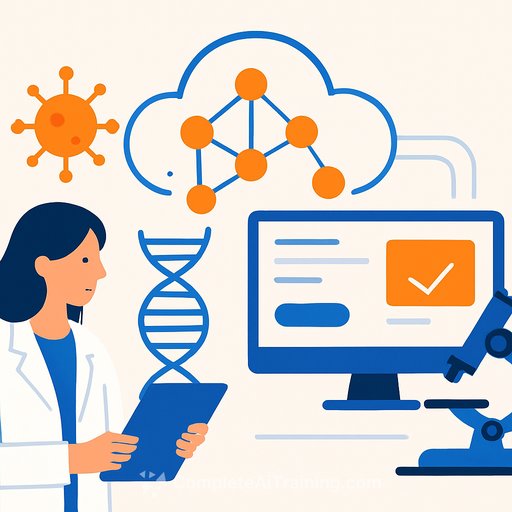CAS introduces science-smart agentic AI to streamline research workflows
CAS is rolling out agentic AI across CAS BioFinder and CAS SciFinder to automate parts of complex research workflows. These agents are trained on scientific language and grounded in the curated CAS Content Collection, so responses come with sources and structure-not guesswork.
Instead of wrestling with rigid queries, scientists can ask direct questions, follow up, and get evidence-backed answers linked to CAS entities and external references. It's a faster way to move from question to insight without losing rigor.
What's new in CAS BioFinder
In the coming months, CAS BioFinder will include a conversational agent that supports multi-turn questions and answers in multiple languages. A literature review agent is also planned to summarize relevant publications and open up broader lines of inquiry.
Early use shows value in complex disease areas. For example, researchers studying ovarian cancer used the agent to guide inquiry and surface new directions, with report-style responses that make exploration easier to review and share.
What's coming to CAS SciFinder
Before the end of 2025, CAS SciFinder will introduce similar agentic AI capabilities for chemical research. Responses will be linked to CAS entities and external sources for validation and deeper follow-up.
Quality controls are built in: judgment agents flag potential inaccuracies, and you can resume or download session histories for audit and collaboration. The approach matches CAS standards for transparency and responsible use of AI.
Why it matters for scientists
Traditional interfaces give structure. Agentic AI adds a conversational layer that lets you ask natural-language research questions while keeping the ability to pivot into familiar workflows.
Because the agents draw on the CAS knowledge graph, they connect concepts, relationships, and data points that might be missed with conventional searches. The result: faster synthesis, clearer trade-offs, and more confident decisions.
"Agentic AI saves scientists time and helps them focus on higher-value work," said Manuel Guzman, President, CAS. "These agents accelerate the innovation process by streamlining data exploration, highlighting relevant insights, and enabling faster, evidence-based decisions."
Where CAS is taking this next
CAS is integrating agentic AI across its solutions, inside its own operations, and through CAS Custom Services to help organizations advance their AI strategies. Upcoming development targets tougher challenges in predictive modeling and decision support, using human-curated data from the CAS Content Collection to push research forward across disciplines.
Practical ways to use it on day one
- Ask mechanistic or pathway questions, then follow up for methods, controls, and comparators.
- Kick off a literature scan and request a structured summary with linked references.
- Cross-check claims via linked CAS entities and external sources before you commit.
- Export or resume session histories to document rationale and share with collaborators.
- Query in your preferred language and confirm terminology using the agent's citations.
- Pair conversational Q&A with your usual structured search to avoid gaps.
Resources
If your team is leveling up skills for AI-assisted research, explore practical training paths by role at Complete AI Training.
Your membership also unlocks:






